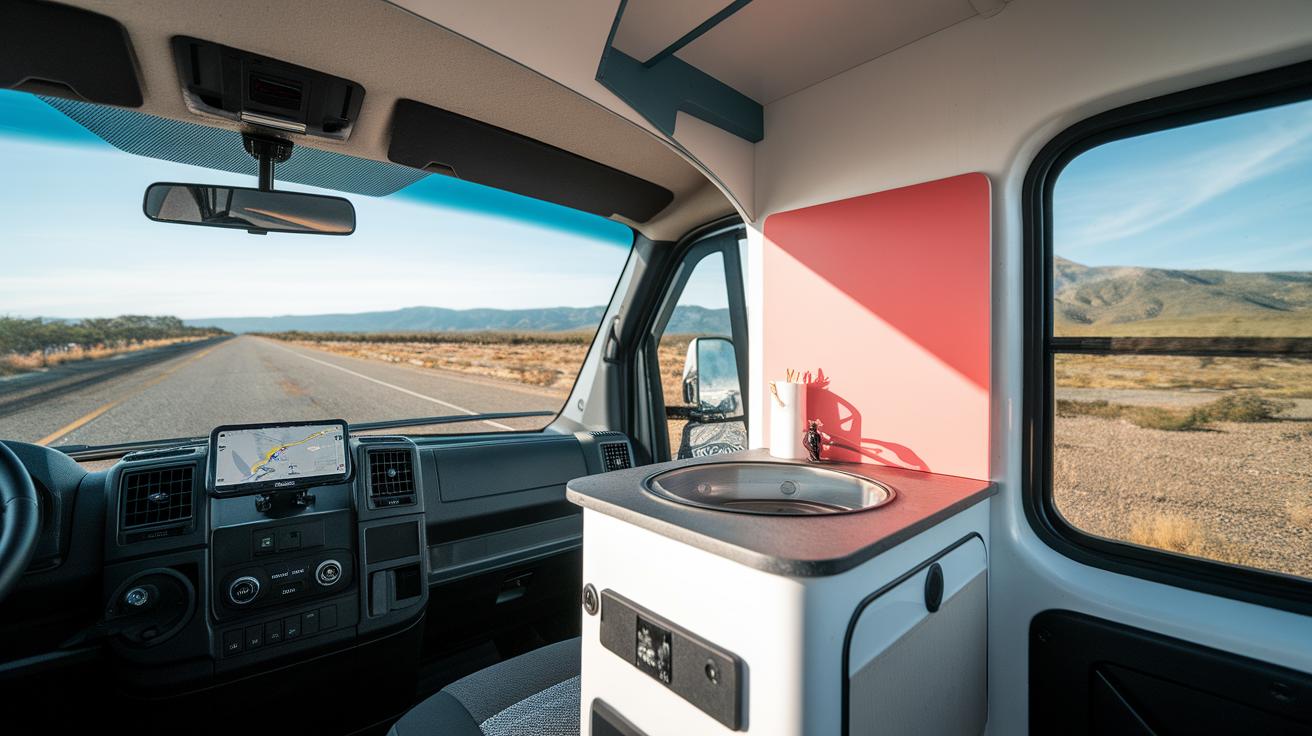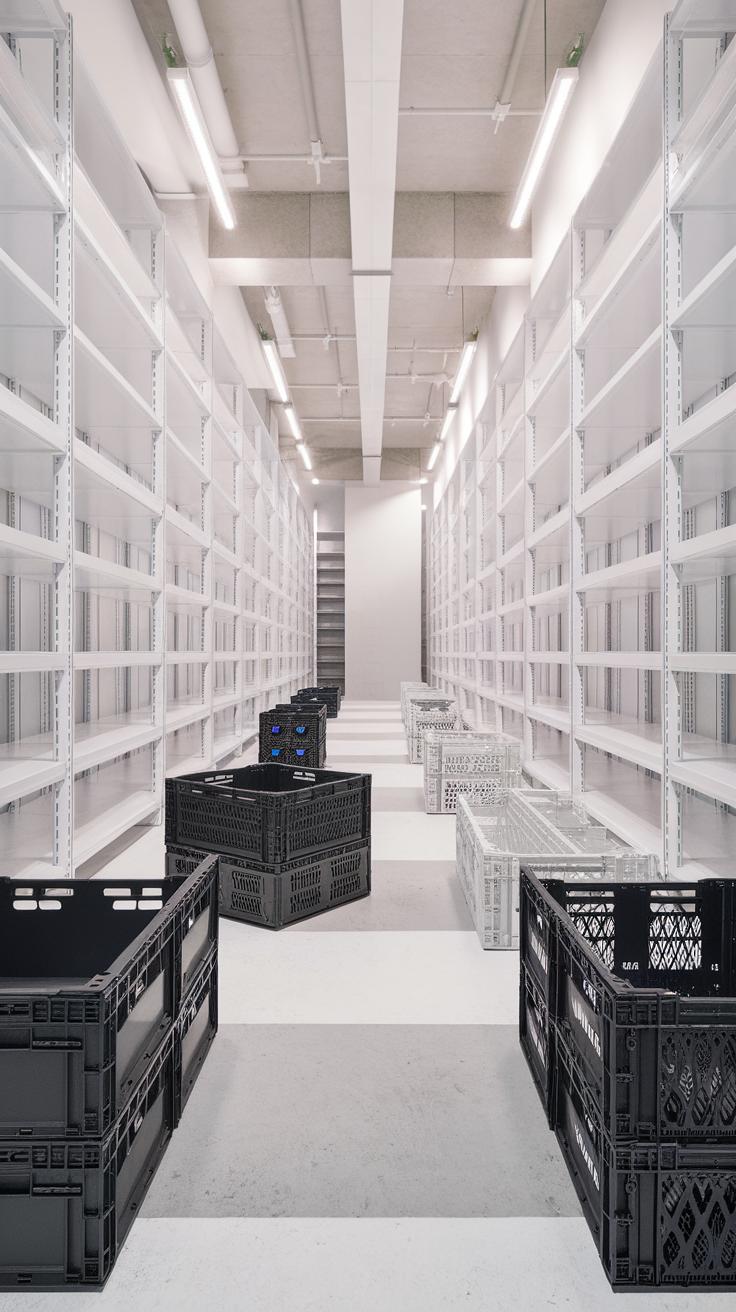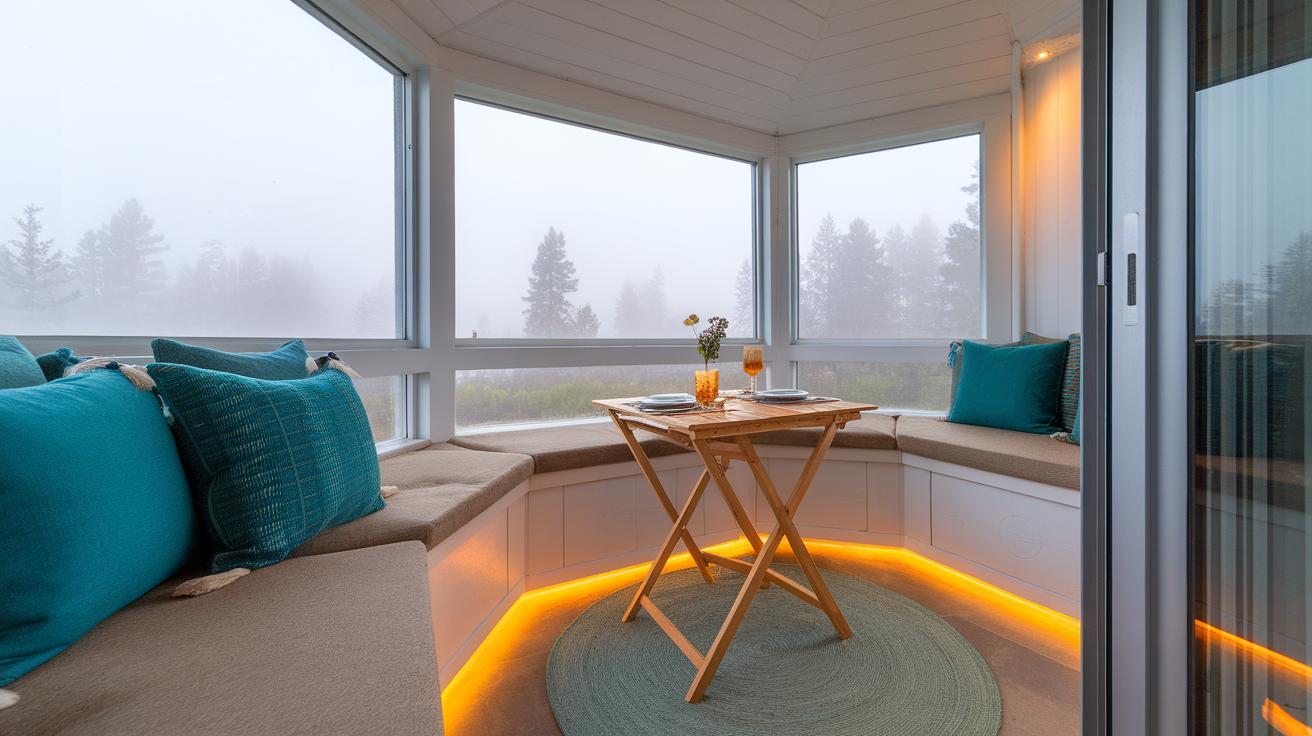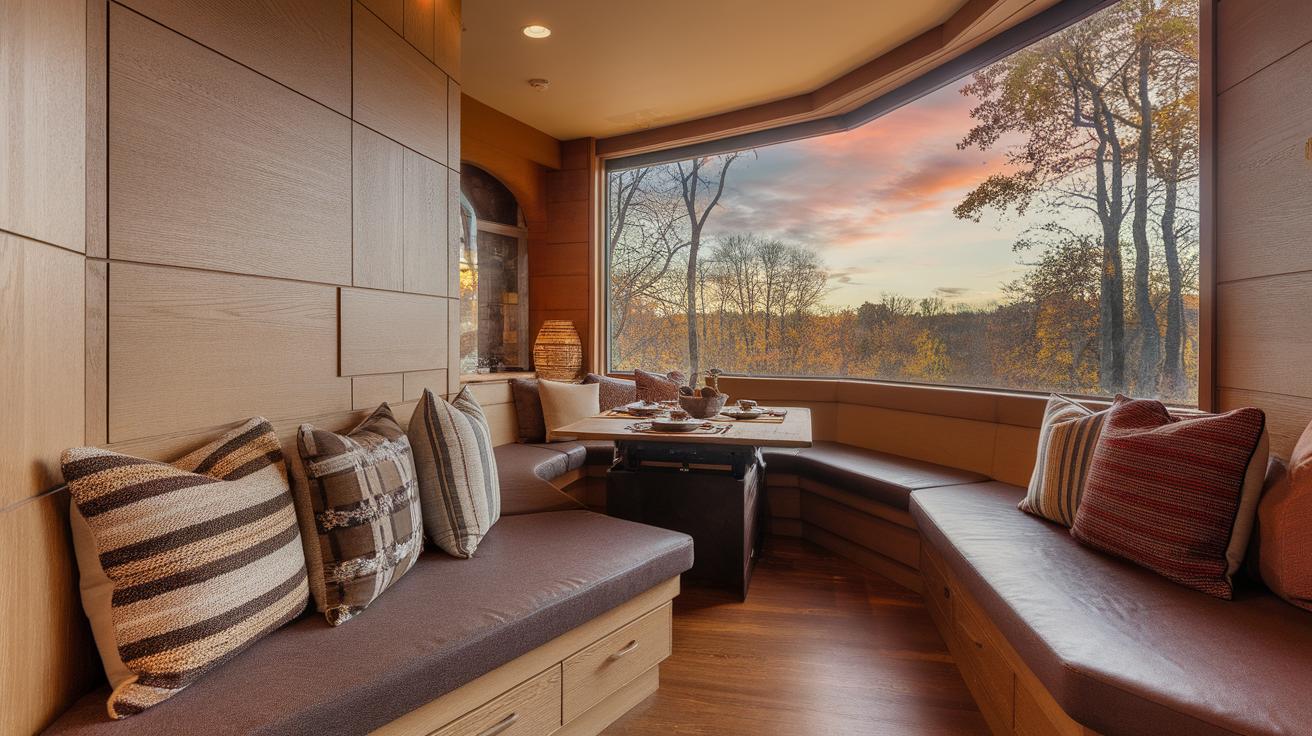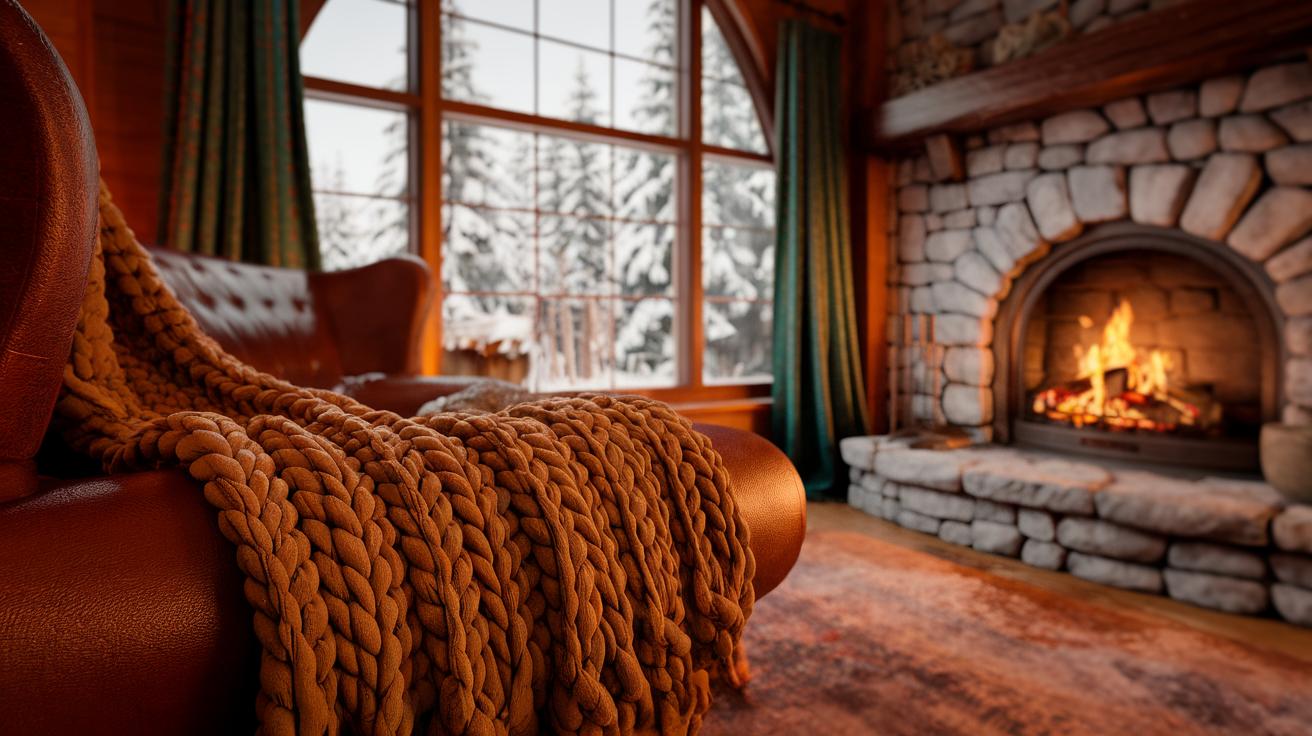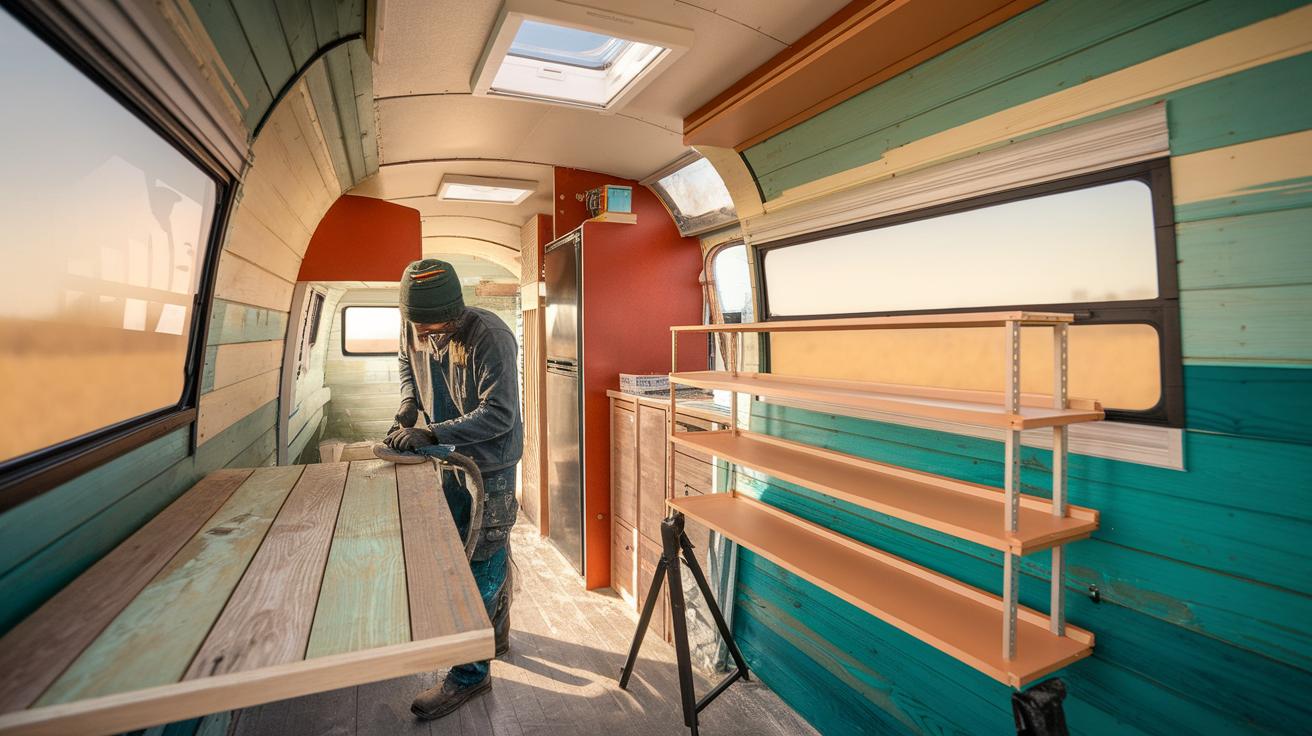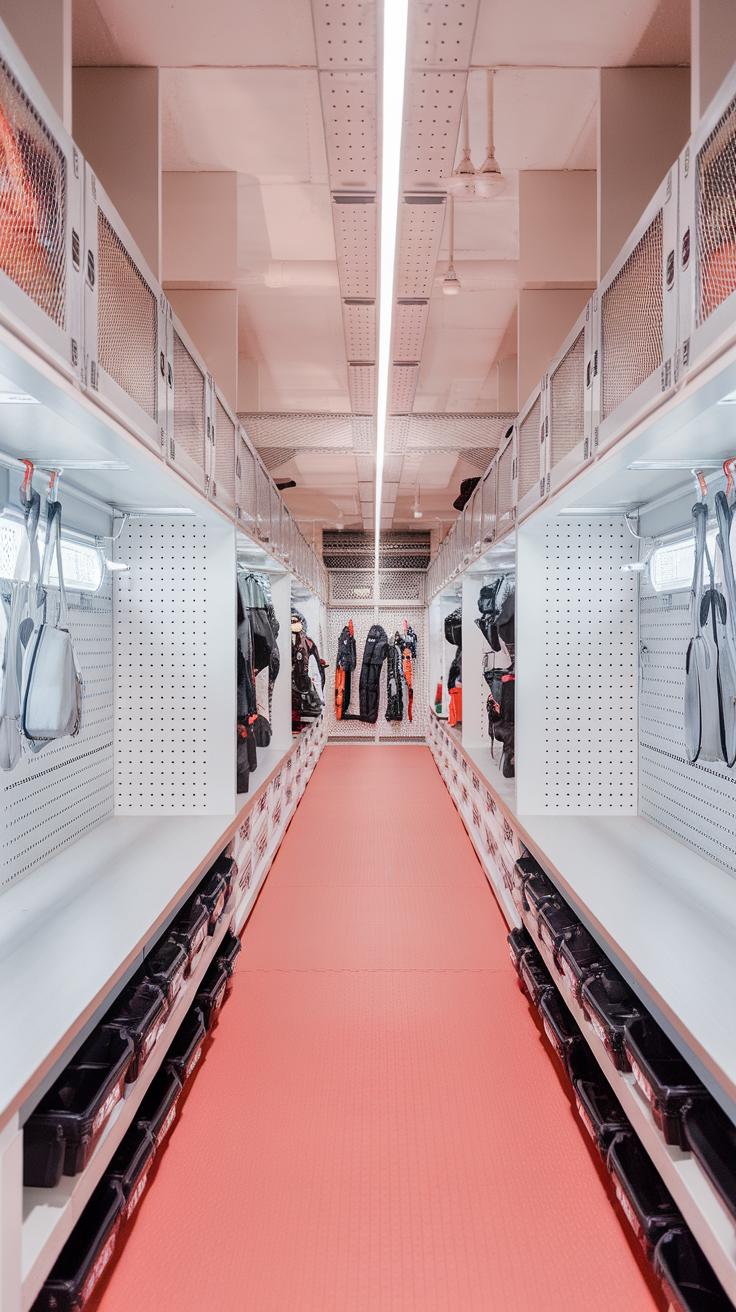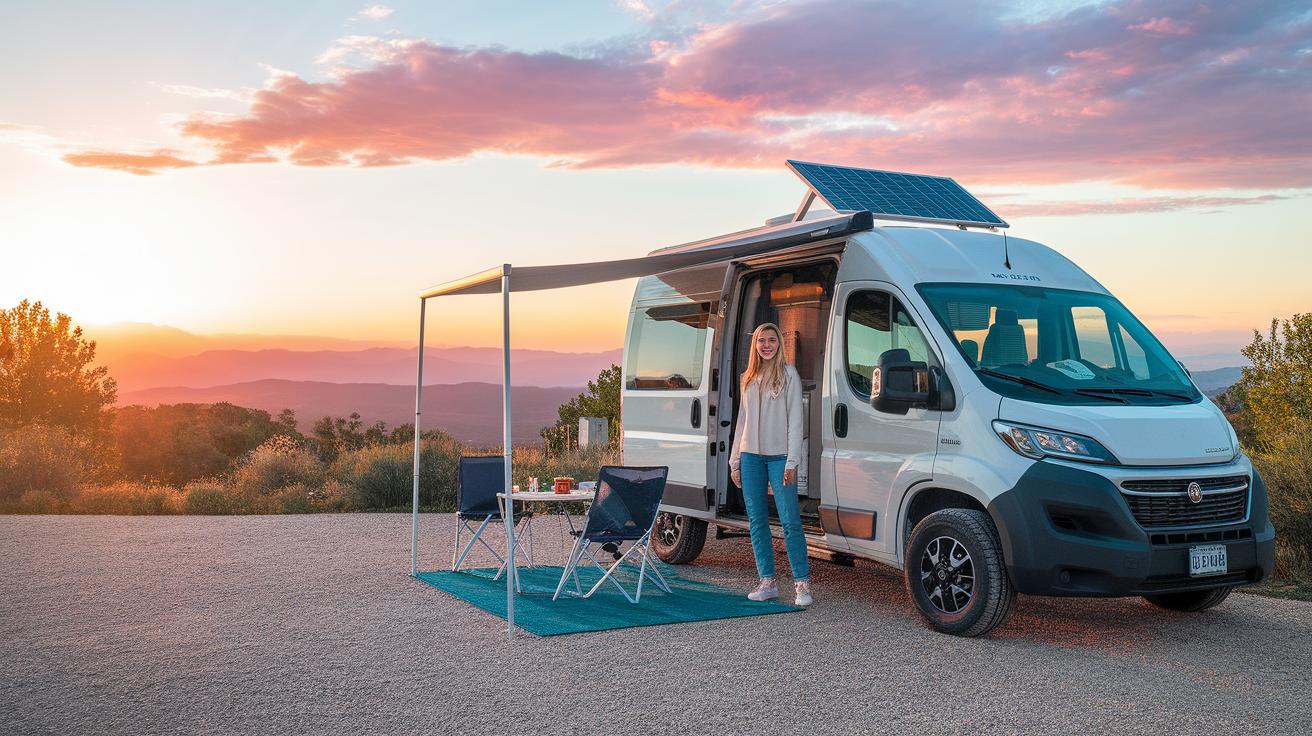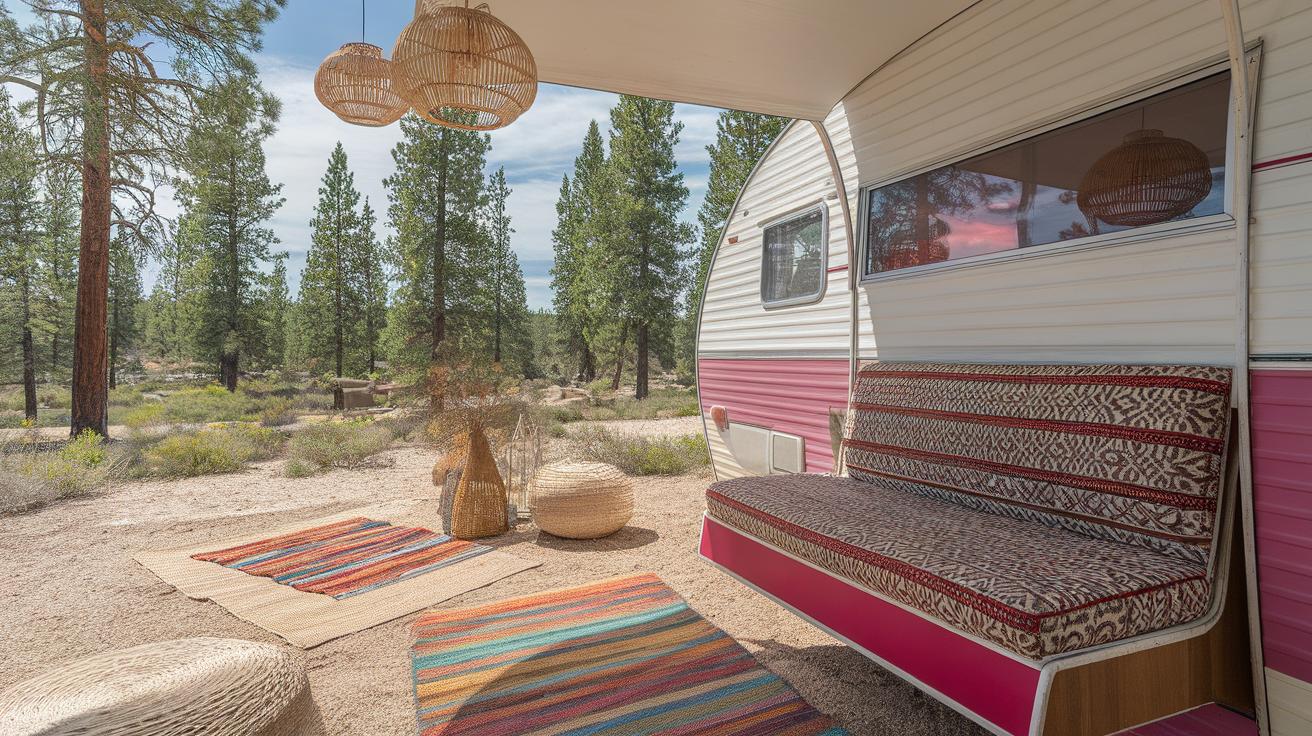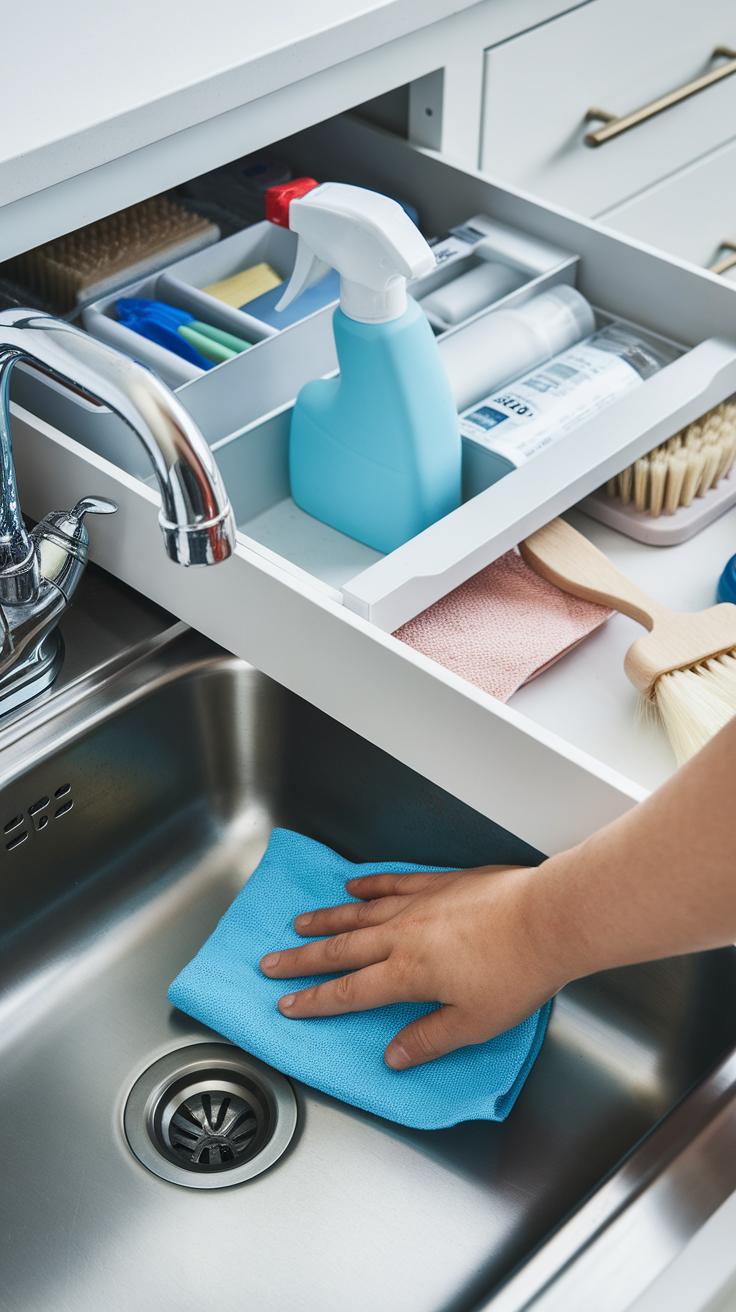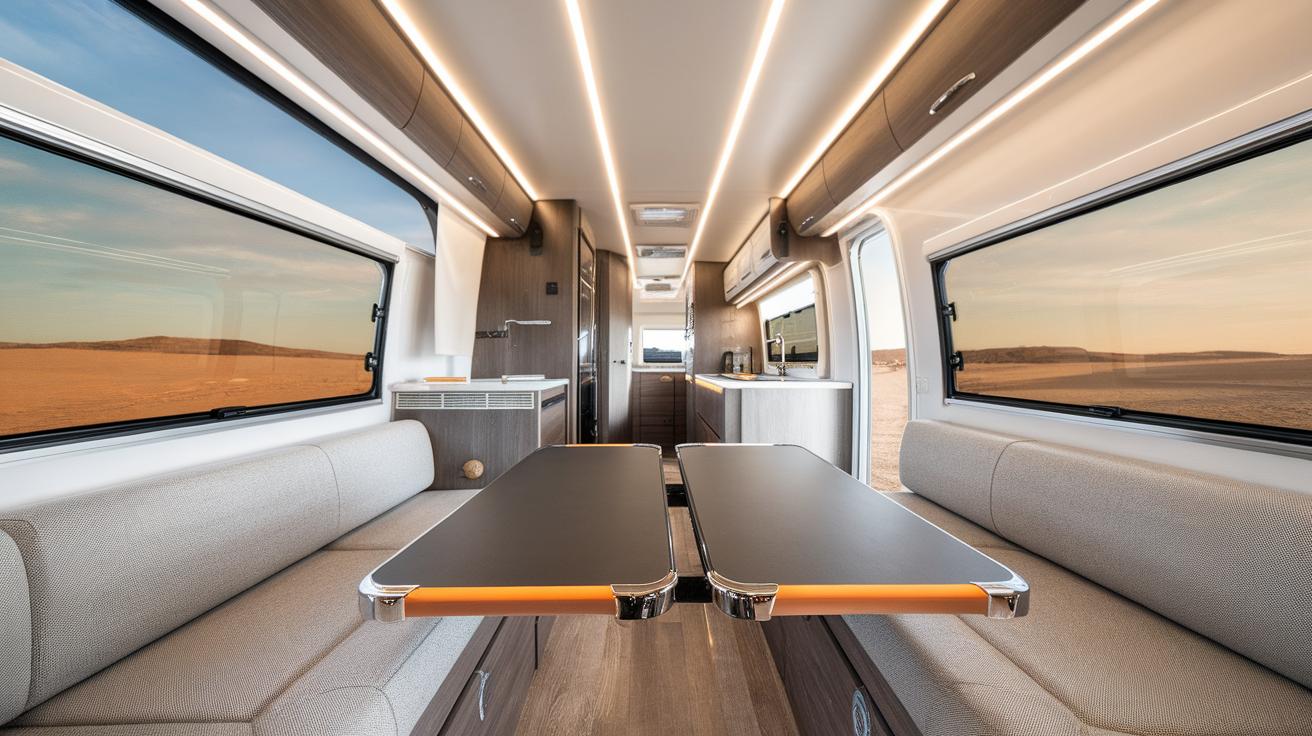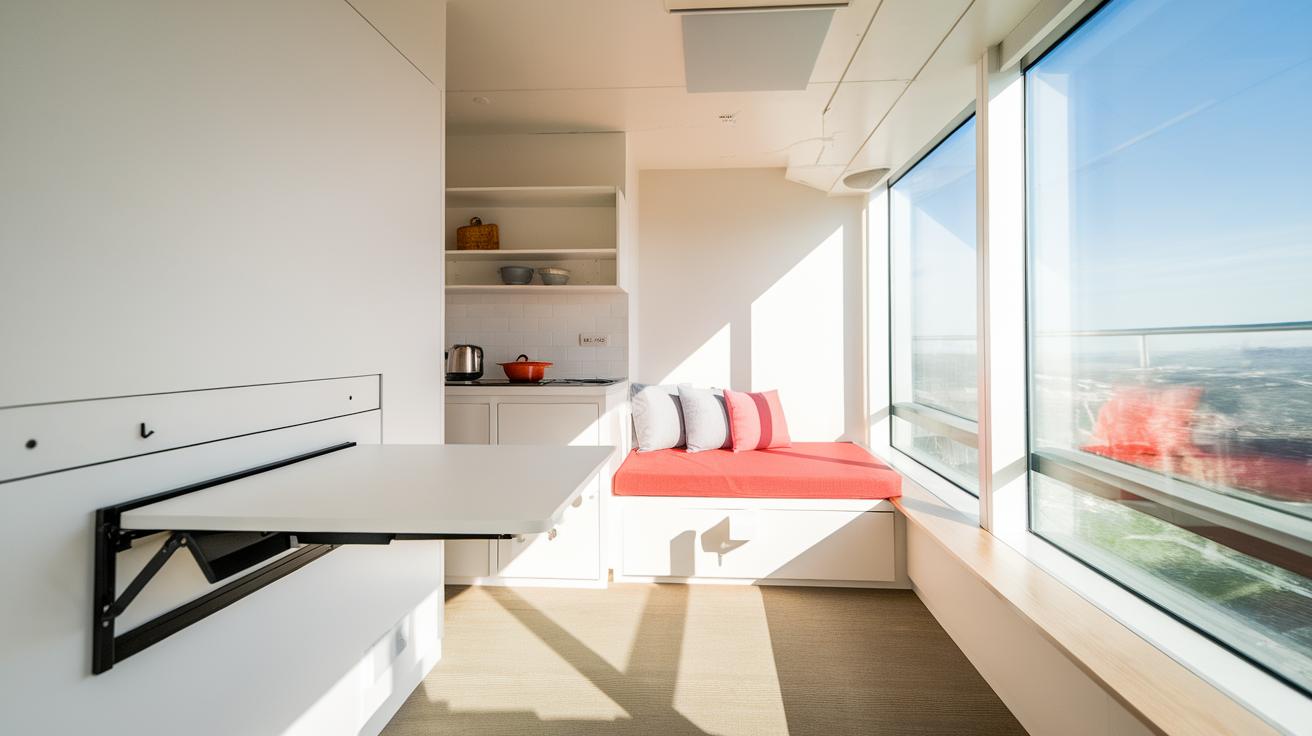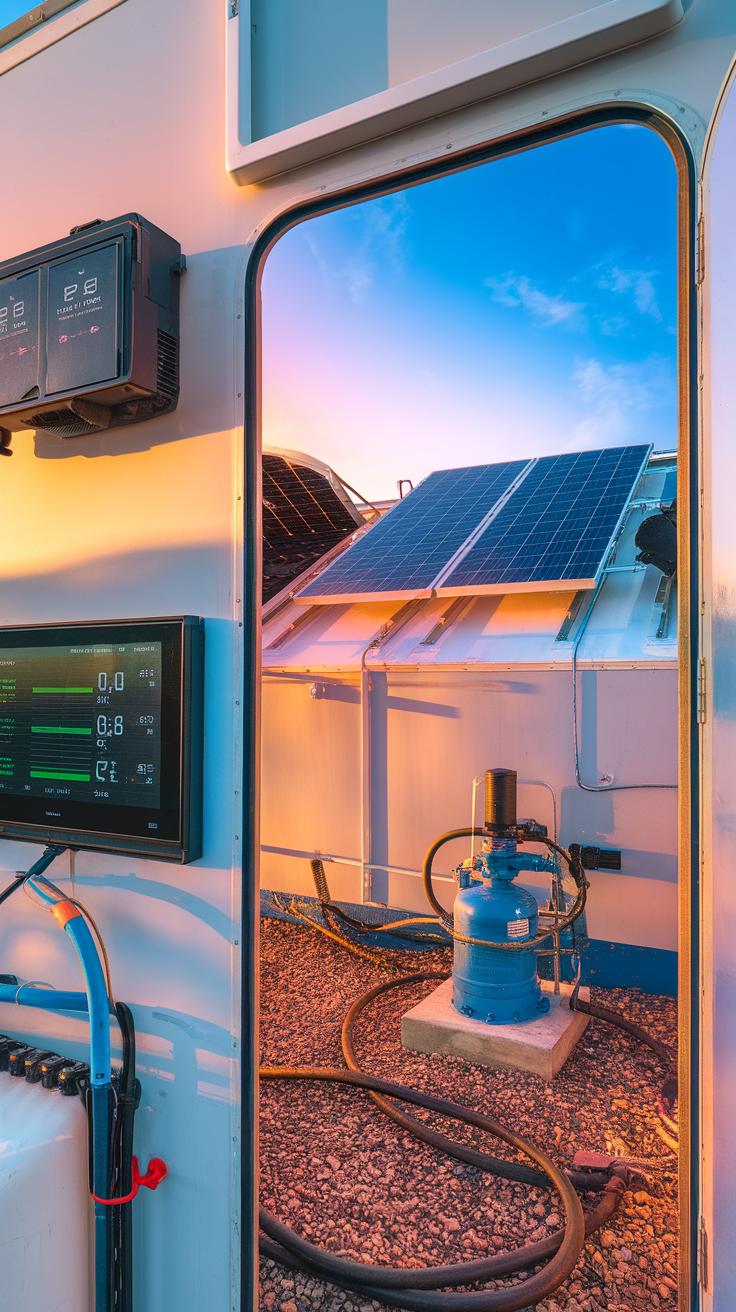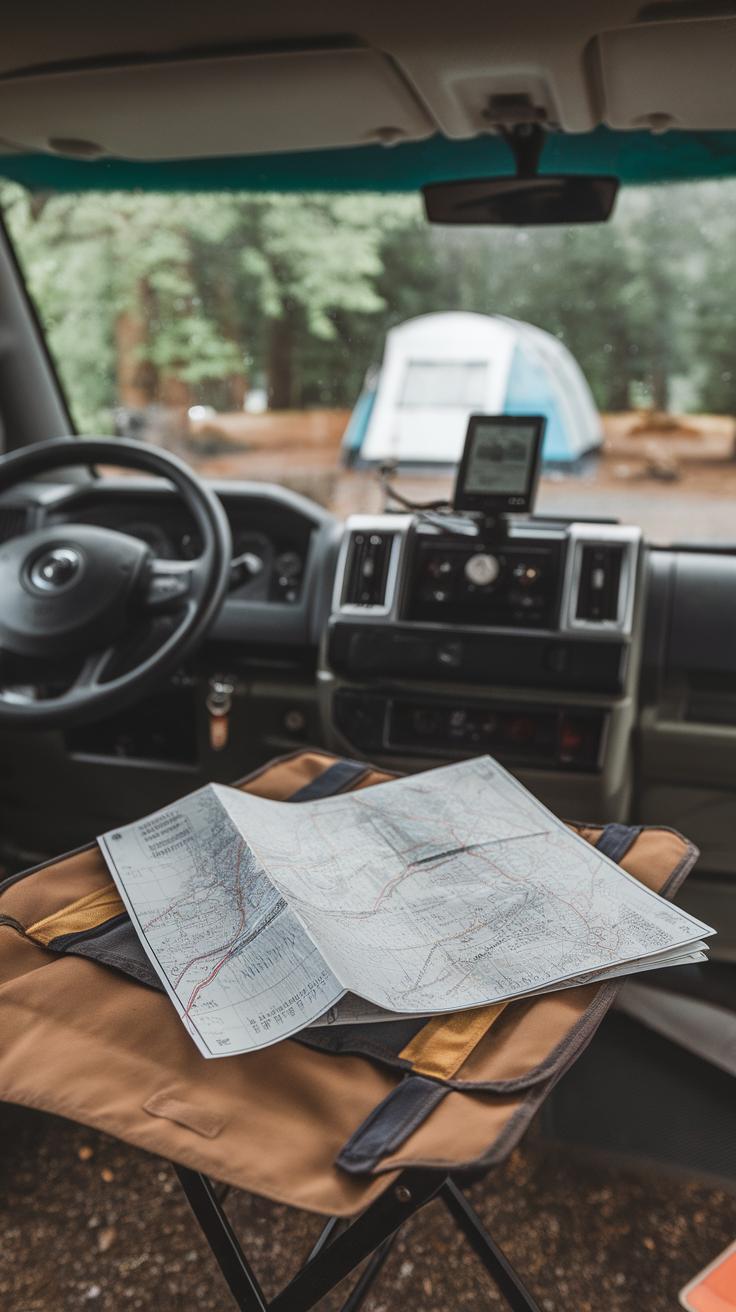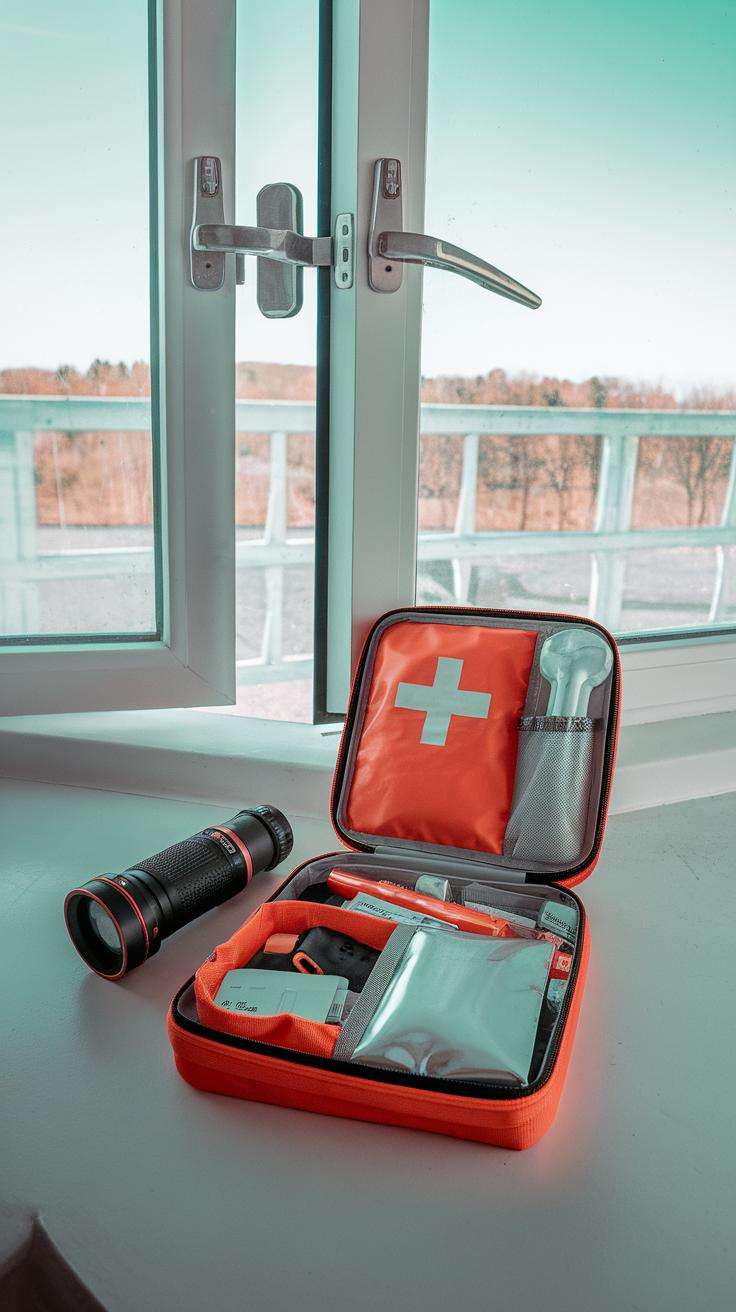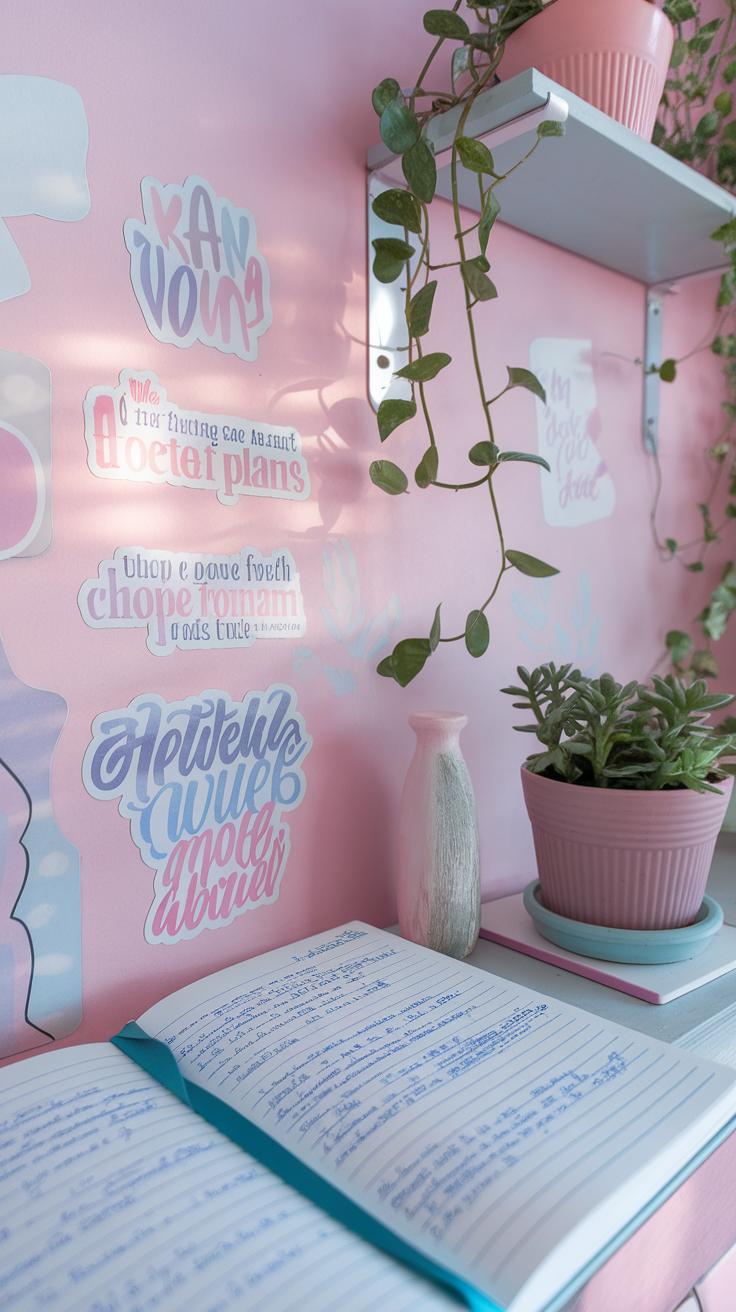Introduction
Living the camper van life offers freedom to explore and experience new places while having the comforts of home nearby. This lifestyle attracts many who seek adventure and simplicity. However, managing life in a compact space comes with its own challenges. Simplifying your camper van lifestyle can make your adventures more enjoyable and stress-free.
This article guides you through practical ways to reduce complexity in your camper van life. You will learn how to organize, maintain, and plan effectively. You will find actionable tips designed to help you maximize comfort, efficiency, and happiness during your travels.
Planning Your Camper Van Setup
Choosing the right camper van setup starts with understanding how you will use your van. Will you travel solo, with a partner, or a family? The number of travelers directly affects the space and storage you need. Reflect on the places you want to visit—do you prefer city streets or rugged trails? This influences your desired van size and mobility.
Think about your budget because camper vans vary widely in price depending on features, size, and build quality. Decide how often you will use the van—daily living requires more durability and amenities compared to weekend getaways. Prioritize features that match your travel style, so you avoid overcrowding your space with unnecessary extras.
Consider your energy and water needs early on. Do you want solar power or a full plumbing system? These decisions guide your setup. The goal is clear: design a space that fits your habits and helps you enjoy life on the road without constant fuss.
Choosing the Right Van Size and Layout
Your choice of van size depends on how many people will travel with you and how much gear you carry. If you go solo or with one other, a smaller van offers easier parking and better fuel efficiency. More travelers or pets mean bigger vans with extra sleeping quarters.
Evaluate mobility. A larger van may hold more but can limit where you can drive or park. Think about parking in tight spots, off-road access, or city streets.
Common layouts include the basic bed-and-storage combo, a modular setup with removable furniture, and fixed kitchen or bathroom areas. Simple layouts save space and make cleaning easier, while fixed layouts provide more comfort. What layout feels right for your daily routine and travel preferences?
Essential Amenities to Include
Pick amenities that support comfort without crowding your van. A compact kitchen with a small stove and sink covers basic cooking needs while saving space. Sleeping arrangements vary from fold-out beds to fixed bunks—choose what fits your comfort and space budget.
Storage is key. Use overhead compartments and under-bed bins to keep your gear organized and easy to access. Include multi-purpose furniture, like benches that double as storage chests. Avoid clutter by sticking to essentials that serve multiple roles.
Don’t forget power sources like batteries and solar panels for off-grid stays. Water storage and waste management might seem complex but keep trips easier. Balance between what you want and what keeps your van simple and efficient.
Minimizing Your Belongings
Living in a camper van means limited space, so keeping your belongings to a minimum makes daily life easier. Each extra item can add clutter and make cleaning or moving around harder. When you select only what you really need, your van feels more open and organized.
Ask yourself: Do I use this often? Does it serve multiple purposes? Items that meet these questions should stay. If not, consider letting them go. Reducing clutter helps maintain your van quickly and frees up space for essentials like food and gear.
Smaller inventories reduce stress and simplify packing for travel. You don’t have to hunt for things or rearrange your home constantly. Minimalism in a camper van is practical and creates a calm living environment.
Evaluating What You Really Need
Before packing, list everything you want to bring. Then, think about how often you’ll use each item. For example, a winter coat may not be necessary if you travel in warm climates year-round. Clothing should be versatile and easy to layer.
Keep tools or kitchenware that serve different functions. A pot that works as a bowl saves space. If something hasn’t been used in the last month, consider leaving it behind. Be strict but realistic about your daily needs.
Challenge yourself: Does this item improve your comfort or survival, or is it just a habit to carry it? Use this to guide your choices and avoid packing excess gear.
Storage Solutions for Small Spaces
Maximize every inch inside your van by using vertical shelving and stackable containers. Clear bins keep items visible, so you find what you need quickly. Multi-purpose containers that fit into tight spots reduce wasted space.
Hooks and magnetic strips can hold tools or kitchen utensils along walls. Use under-bed storage for things you use less often. Foldable baskets and collapsible boxes help when you need extra space but don’t want bulky items on display.
Organized storage shortcuts your daily tasks by keeping things accessible and neat. This makes tidying less time-consuming and your camper van feel bigger than its actual size.
Organizing Your Space Effectively
Arranging your camper van belongings in a logical way cuts down on daily stress. When each item has a clear place, you spend less time searching and more time enjoying your trip.
Think about what you use most often. Keep those items within easy reach. Store things you use less frequently in harder-to-access spots. This simple method saves effort and creates a natural flow.
You can also group similar items together. For example, keep all cooking tools in one drawer or box. When it’s time to prepare meals, you won’t waste time hunting for what you need.
Ask yourself: where will I need this most? Make those areas your priorities during setup. This focus can transform even a small van into a functional space that feels bigger and works better every day.
Zoning Different Areas
Dividing your van into zones helps you maintain order. Create separate spots for sleeping, cooking, and working. This clear separation makes it easier to switch activities without clutter piling up.
Set up your bed in one corner or a cozy nook. Arrange your kitchen tools near the cooking area to reduce back-and-forth. Dedicate a workspace with a small table or lap desk to keep devices and papers organized.
How does zoning affect your daily routine? It prevents overlap and confusion, making your van feel more like a home. You won’t need to clear your sleeping area before meal prep or search for work materials among kitchen gear.
Using Containers and Labels
Containers keep your belongings contained and prevent chaos. Use bins, baskets, or stackable boxes to group similar items together. Choose sizes that fit your available space and your typical load.
Labels add another layer of ease. Mark each container clearly so you can find what you need fast. Whether you write on tape or use tags, labels save time and avoid frustration, especially on busy days.
Consider labeling suits for food, tools, cleaning supplies, or clothes. This system encourages you to return items to their proper place and keeps your van organized. What could you label right now to improve your setup?
Keeping Your Camper Van Clean
Your camper van is a small living space where dirt and clutter can build up quickly. Maintaining cleanliness supports your health and keeps the space comfortable. Creating simple routines helps avoid messes that take time and energy to fix later.
Focus on habits that fit easily into your daily life. Cleaning as you go reduces buildup and prevents overwhelm. Small actions like wiping down kitchen counters after cooking or putting items back in their place make a big difference. These habits keep your van feeling fresh and less crowded.
Consider the air you breathe. Regularly opening windows for ventilation and using natural cleaning products can reduce odors and improve indoor air quality. Think about how often dust gathers on small surfaces or crumbs on the floor. If you don’t stay on top of these, they can become bigger issues fast.
Ask yourself: How can you make daily cleaning part of your routine without using too much time? A quick sweep or organizing session every evening could be your best defense against mess.
Daily Clean-Up Habits
Wiping surfaces every day stops grime from settling in. After you cook or eat, run a cloth over counters and the table. This stops crumbs and spills from attracting pests. Keep cleaning wipes or a small spray bottle with you for easy access.
Organize your belongings each day, especially items you frequently use. Putting your keys, wallet, or tools back in their spots saves time next time you need them. Even five minutes of tidying before bed works wonders for keeping your living area neat.
Consider making a checklist of small tasks like clearing trash, folding blankets, or checking your storage bins. Doing these tasks daily prevents a bigger cleanup later. This steady effort makes your camper van feel more like home.
Managing Waste and Laundry
Handling trash while traveling requires planning. Use reusable bags or containers for garbage to keep odors contained. Empty your trash regularly, especially if you store food waste. Seek local dump stations or recycling centers during stops to dispose of waste properly.
Laundry does not need to pile up. Find laundromats along your route or use portable wash bags to clean clothes inside your van. Dry clothes outside when weather allows, which saves space and energy. Keep laundry organized in separate bags to avoid mixing dirty and clean items.
Think about your waste and laundry routines before they become urgent. How often will you take out trash or wash clothes? Planning these tasks helps you maintain a pleasant environment and avoid clutter that impacts your comfort on the road.
Managing Water and Power Efficiently
Water and electricity are two of the most critical resources in your camper van. Managing them well helps you avoid shortages and keeps you independent on the road.
Conserving Water Use
You can save water by keeping showers very short—aim for just two or three minutes. Using a low-flow showerhead reduces water flow without losing pressure. When washing dishes, fill a basin instead of letting the water run. Scrape off food scraps before washing to cut down on the water needed. Consider using biodegradable wipes for quick cleanups that don’t require water. Tracking your water use daily makes it easier to stay within your limits. Have you thought about which daily tasks use the most water and how you might change them?
Using Solar and Battery Power
Solar panels capture sunlight and turn it into electricity you can store in batteries. This setup lets you power lights, charge devices, and run small appliances without plugging into the grid. A reliable battery system stores energy for use when the sun isn’t shining. Choosing the right battery size depends on how much power you need daily. Installing a solar charge controller keeps your batteries safe from overcharging. You can monitor your battery and solar status with simple displays or apps to prevent running out unexpectedly. How much power do you really need each day, and how can solar help you reach that?
Planning Your Travel Routes and Stops
Planning your routes and stops ahead of time helps you avoid unnecessary stress on the road. When you know where you’ll stop each day, you can manage your time better and focus on what matters most. You won’t waste hours searching for safe places to park or last-minute spots to refuel. Instead, your days flow more smoothly and you gain control over your camper van life.
Thinking about how far you want to drive each day can prevent exhaustion. It also allows for a balance between travel and relaxation. What activities or sights do you want to fit into your day? Scheduling shorter driving segments can open the door to exploring local spots and meeting fellow travelers. This careful planning creates more moments of enjoyment than rushing without a plan.
Choosing Safe and Convenient Locations
When picking overnight stops, safety comes first. Look for well-lit areas near other campers or public facilities. Accessible amenities like water sources, showers, or dump stations make your stay easier. You might want spots near grocery stores or medical centers for emergencies. Avoid isolated or restricted areas that can cause trouble.
Think about convenience too. How close are your stops to your next destination? Are roads suitable for your vehicle size? A quiet spot may be pleasant, but if it’s hard to reach or far from essentials, you’ll lose valuable time and energy.
Using Technology for Navigation
Apps can simplify planning by showing routes, road conditions, and services along the way. Tools like Google Maps help avoid traffic and find the fastest paths. Camp-specific apps such as Campendium or iOverlander guide you to vetted camping spots with reviews.
Use apps that track your fuel, water, or battery stations, so you never get caught off guard. These tools reduce guesswork and let you focus on the journey. What features do you need most in your navigation tools? Exploring them now saves frustration later.
Balancing Work and Life on the Road
Your camper van is both home and office. Keeping a balance between work and downtime helps you avoid burnout and enjoy the journey. Work can easily spill into all hours without clear limits. How will you keep control over your day?
Creating a defined workspace inside your van helps. Use a small table or desk area reserved just for work. When you leave that spot, you signal your brain to switch to relaxation mode. Setting specific work hours and sticking to them gives your day structure and keeps tasks from dragging into personal time.
Turning off email or work notifications outside those hours protects your focus. You might find it useful to schedule breaks for stretches, fresh air, or short walks. Staying active helps reset your mind and body.
Setting Work Boundaries
Clear work zones help reduce distractions in a small space. Choose a consistent spot for work in your van. Arrange your tools and devices there each day to create routine. Use physical cues, like a laptop stand or noise-canceling headphones, to signal work time.
Plan your daily schedule ahead. Block out specific hours for deep work and avoid multi-tasking. You can use a timer or reminders to stay on track. Communicating your schedule to family or travel partners builds respect for your focus periods.
When work time ends, shut down your workspace completely. Pack away office items and leave the area for non-work activities. Making this boundary clear helps you switch gears and enjoy your surroundings.
Finding Relaxation and Social Opportunities
Your personal time on the road matters just as much as work. Find small ways to relax daily. Try listening to music, reading, or practicing mindfulness near a scenic view. These moments recharge your energy.
Joining local events or camper van meetups creates chances to meet others. Simple activities like cooking together around a campfire or exploring trails with fellow travelers build connections. Social interaction helps keep loneliness at bay and adds fun to your routine.
Do you take time to notice the places you visit beyond working? Balancing your schedule to include personal adventures will make camper van life more fulfilling on every level.
Staying Safe in Your Camper Van
Living and traveling in a camper van offers freedom, but safety must remain a priority. Maintaining your vehicle’s condition prevents unexpected breakdowns that can leave you stranded. Check your tire pressure weekly and look for uneven wear. Inspect fluid levels like oil, coolant, and brake fluid regularly. Replace windshield wipers and lights as needed. Examine belts and hoses for cracks or signs of wear. Small pre-trip inspections can save you from costly repairs on the road.
Vehicle Maintenance and Checkups
Routine maintenance extends the life of your camper van and keeps you safe. Create a schedule for oil changes and service appointments based on mileage. Before a long trip, test your battery and charging system. Ensure your brakes respond well and the suspension feels stable. Carry a basic toolkit and emergency supplies like jumper cables and spare fuses. Performing these checks reduces stress and builds confidence while traveling.
Personal Safety Measures
Choose well-lit and populated areas for overnight parking. Lock all doors and windows even when inside. Use additional locks or a steering wheel lock for extra security. Have a charging phone inside reach and keep emergency numbers saved. Share your travel plans with a trusted friend or family member. Carry a first aid kit and know basic emergency procedures. Ask yourself: Could I access help quickly if something happens during the night?
Adapting and Improving Your Lifestyle Over Time
Living in a camper van is a journey that changes with time. Your habits and needs will evolve as you spend more days on the road. Take moments regularly to reflect on your daily routines and the layout of your van. Are certain tasks harder than they should be? Is your storage working well? Small adjustments can make a big difference in comfort and efficiency.
For example, if you find reaching kitchen supplies difficult, rearrange your cabinets or add hooks for easier access. When you notice repeating struggles, write them down or track your solutions. Asking yourself what works and what does not helps you focus on real improvements instead of guesswork.
Try to remain open to change. Your first setup might not be ideal after a few months. Identifying pain points and refining your system keeps your van life experience smooth and enjoyable. How can you make your daily tasks simpler today compared to last month?
Learning from Experience
Keeping a simple journal or checklist can help you spot patterns over time. Note what routines save time and which create stress. For instance, if cooking is taking too long, consider swapping tools or changing your meal plan. Watch how your energy levels and comfort fluctuate with changes you make.
By tracking successes and failures, you create a personalized roadmap for improvement. You’ll quickly learn what to keep, what to toss, and what to try next. Incline toward solutions that reduce effort and increase value. What small change could save you the most hassle?
Incorporating New Tools and Ideas
Stay curious about new gadgets and methods that might improve your setup. Lightweight solar chargers, collapsible furniture, or multi-use kitchen tools can simplify your life. If you hear about a new storage hack or see a clever placement for your gear, test it yourself.
Adopting fresh ideas doesn’t mean overcomplicating your space. Focus on tools that streamline tasks or enhance your comfort without extra fuss. Have you tried any new gear lately that changed how you live in your van? Trying new options often leads to unexpected benefits and better enjoyment on the road.
Conclusions
Simplifying your camper van lifestyle brings many benefits. It reduces stress, improves your travel experience, and allows you to focus on what matters most: exploring and enjoying life on the road. By limiting possessions, organizing your space, and planning ahead, you gain greater freedom and flexibility.
Ask yourself if your current methods support your goals or add unnecessary burdens. Use the ideas shared to create routines and systems that fit your unique journey. A simple and well-planned camper van life lets you travel smarter and enjoy each moment more fully.


